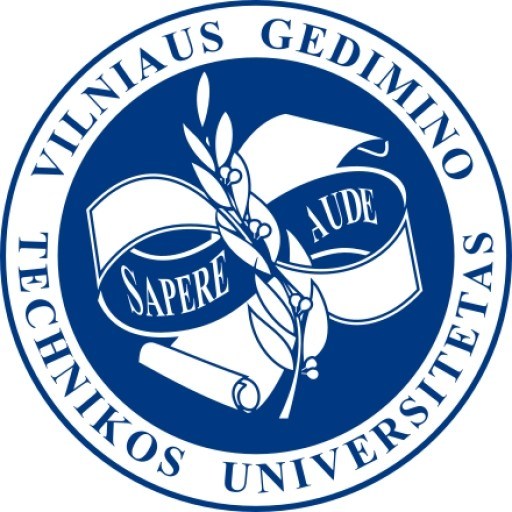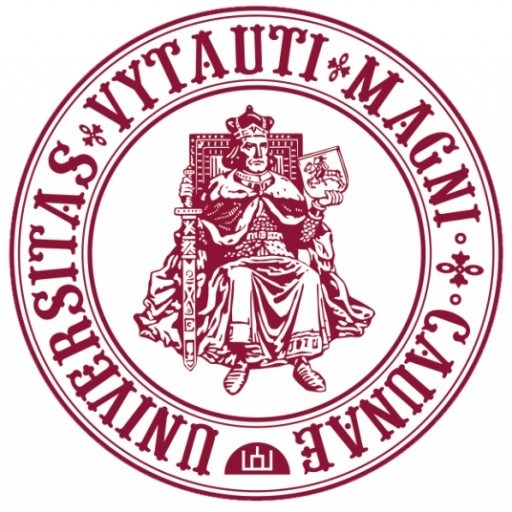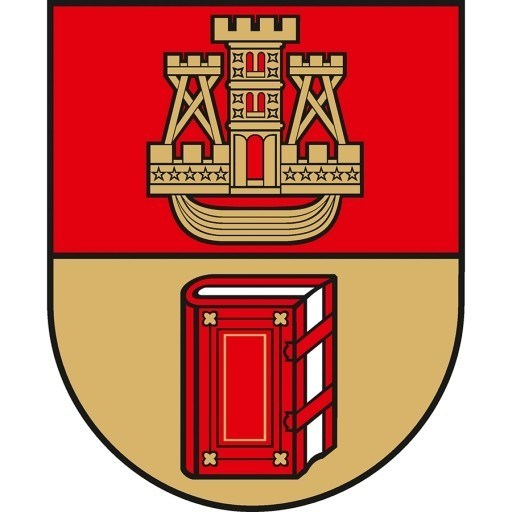Electrical Energetics Systems Engineering at Vilnius Gediminas Technical University offers a comprehensive and innovative education designed to prepare students for the rapidly evolving energy sector. This programme focuses on the design, development, operation, and maintenance of electrical power systems, integrating the latest technological advancements and sustainable practices. Students will gain a solid foundation in electrical engineering principles, complemented by specialized knowledge in power generation, transmission, distribution, and automation systems. The curriculum combines theoretical studies with practical training, including laboratory work, projects, and internships with industry partners, ensuring graduates are well-equipped to meet the challenges of modern energy infrastructure. Emphasis is placed on renewable energy sources, energy efficiency, and smart grid technologies, reflecting global trends towards sustainable development. Throughout the programme, students develop critical skills in system analysis, control, and optimization, preparing them for careers in designing and managing electrical power systems that are reliable, efficient, and environmentally friendly. The programme is also designed to foster innovation, entrepreneurship, and lifelong learning, enabling graduates to adapt to technological changes and contribute to the development of the energy sector in Lithuania and beyond. Upon completion, graduates will receive a Bachelor's degree in Electrical Energetics Systems Engineering, opening opportunities for employment in electrical utilities, engineering consulting firms, manufacturing industries, research institutions, and governmental agencies committed to sustainable energy solutions. The programme is conducted in English, attracting international students and fostering a multicultural academic environment that enhances intercultural communication and collaboration skills.
Electrical Energetics Systems Engineering program at Vilnius Gediminas Technical University is designed to prepare highly qualified specialists capable of designing, developing, and maintaining modern electrical systems and energy infrastructure. The program encompasses a comprehensive curriculum that combines theoretical knowledge with practical skills, aiming to meet the demands of the rapidly evolving energy sector. Students will study core subjects such as electrical engineering, power systems analysis, renewable energy sources, automation, control systems, and smart grid technologies. Emphasis is placed on sustainability and energy efficiency, preparing graduates to address contemporary challenges in energy production, transmission, and distribution.
Throughout the course, students gain experience in designing electrical systems, analyzing energy consumption, and implementing innovative solutions for sustainable development. The program includes hands-on training using modern laboratory equipment, software modeling tools, and real-world projects to ensure practical competence. Students also have opportunities for internships within industry leaders, facilitating valuable insights into current practices and network building.
Graduates of the Electrical Energetics Systems Engineering program will be equipped to pursue careers in power generation, electrical infrastructure management, energy consulting, and research and development. They will possess the skills necessary for the design, optimization, and maintenance of electrical power systems, as well as the integration of renewable energy technologies into existing networks. The program fosters critical thinking, problem-solving abilities, and teamwork, preparing students to become innovative engineers capable of contributing to the sustainable energy future. With its strong foundation in engineering principles and focus on emerging energy trends, this program aims to produce highly skilled professionals dedicated to advancing global energy solutions.
Program requirements for the Electrical Energetics Systems Engineering at Vilnius Gediminas Technical University include a strong foundation in mathematics, physics, and basic engineering principles. Prospective students should have completed secondary education with proven proficiency in mathematics, physics, and information technology. Preference is given to applicants demonstrating problem-solving skills, analytical thinking, and an interest in electrical power systems, renewable energy sources, and energy management.
Applicants must submit their secondary school diplomas or equivalents, along with transcripts illustrating their academic performance in relevant subjects. Additionally, candidates are advised to have practical experience or coursework related to electrical engineering or energy systems, although this is not mandatory. The university may require an entrance examination or interview to assess candidates' technical knowledge and motivation for the program.
English language proficiency is essential for international students; applicants must provide proof of English skills through tests such as TOEFL or IELTS, unless their previous education was conducted in English. For local students, Lithuanian language proficiency is necessary for communication and coursework purposes.
The program also requires submission of a motivation letter explaining the applicant's interest in electrical energetics, career goals, and how the degree aligns with their aspirations. Some programs may stipulate letters of recommendation from teachers or industry professionals to evaluate the applicant’s attitude and suitability for engineering studies.
Students are expected to have a capacity for teamwork, communication, and independent learning, as the curriculum involves extensive laboratory work, project-based assignments, and collaboration. Participation in internships or industry placements is encouraged to gain practical experience in energy projects, power plant operations, and energy system design.
Overall, the admission process aims to select motivated and capable individuals with a strong background in STEM disciplines. Additional requirements may vary slightly depending on the applicant’s educational background and country of origin. The program's entrance criteria are designed to ensure that students are well-prepared for the rigorous academic workload and the technical challenges of electrical energetics systems engineering.
The financing of the Electrical Energetics Systems Engineering program at Vilnius Gediminas Technical University is structured to provide accessible and sustainable funding options for both local and international students. The main sources of financing include state-funded scholarships, self-financing options, Erasmus+ mobility programs, and other international exchange initiatives. Students applying through the state-funded pathway may benefit from government scholarships and grants which cover tuition fees partially or entirely, depending on eligibility criteria such as academic achievement and socio-economic background. Self-financing students are responsible for paying the full tuition fee, which is structured to be competitive within the Baltic region and reflects the high quality of education offered.
The university offers a variety of scholarship programs based on academic excellence, financial need, or specific criteria related to the field of study. These scholarships can significantly reduce the financial burden for students who demonstrate outstanding academic results or are involved in research and development activities related to electrical energy systems. Additionally, students have access to student loan plans facilitated through Lithuanian financial institutions, allowing them to spread the cost of their education over manageable periods.
International students are encouraged to explore funding options through the European Union's Erasmus+ program, which enables mobility for study or traineeship periods in partner universities across Europe. This program not only provides financial support for travel and accommodation but also offers opportunities to engage in international research projects and gain practical experience. The university actively promotes and facilitates participation in such international mobility programs to diversify students’ experience and improve their employment prospects upon graduation.
Furthermore, the university collaborates with industry partners and research institutions, which sometimes offer sponsorships or project funding for students involved in applied research projects or internships related to electrical energy systems. These opportunities can include stipends, research grants, or co-financed projects, providing additional financial support during studies.
Overall, the financing options for the Electrical Energetics Systems Engineering program are designed to ensure that students can focus on their educational and professional development without undue financial hardship. The combination of government scholarships, university grants, international mobility programs, and industry partnerships makes it a comprehensive system aimed at attracting talented students from diverse backgrounds and supporting their successful completion of the program.
Electrical Energetics Systems Engineering at Vilnius Gediminas Technical University is a comprehensive program designed to prepare specialists capable of designing, operating, and maintaining electrical power systems. The curriculum emphasizes both theoretical knowledge and practical skills, enabling graduates to work effectively in the energy sector, including power plants, distribution networks, and renewable energy facilities. Students are introduced to core subjects such as electrical circuits, power electronics, electrical machines, control systems, and energy management. Special focus is given to the integration of renewable energy sources into existing grids, smart grid technologies, and the automation of electrical systems. The program combines lectures, laboratory work, project development, and internships to ensure students gain hands-on experience aligned with industry standards. Graduates are equipped to contribute to the development of sustainable energy solutions, optimize power generation and distribution, and implement innovative technologies in the energy sector. The program is conducted in English, aiming to prepare graduates for the global job market, including international companies and organizations involved in the energy industry. Vilnius Gediminas Technical University maintains collaborations with industry partners, providing students with internships and research opportunities relevant to electrical energy systems. The faculty comprises experienced professionals who are actively engaged in research and development projects, ensuring that the educational content remains up-to-date with technological advancements. Graduates of this program are qualified for roles such as electrical engineer, energy systems designer, maintenance manager, project manager, or research and development specialist in the field of electrical power engineering. The program duration typically spans four years for full-time students, culminating in a bachelor's degree. Admission requirements include a secondary education diploma with a focus on sciences and mathematics, and proficiency in English. This program aligns with international standards and offers opportunities for further studies or specialization in postgraduate programs related to energy systems and renewable energy technologies.







